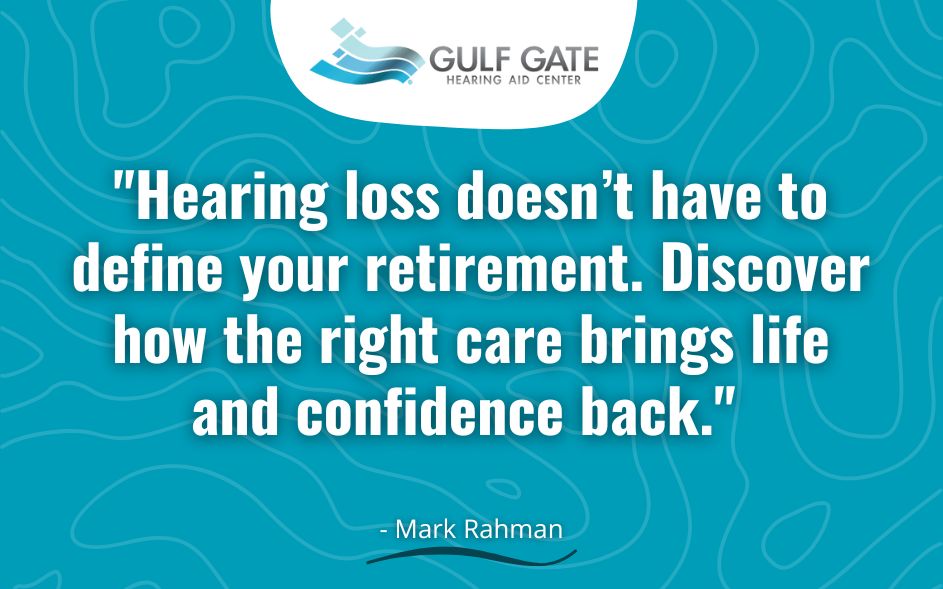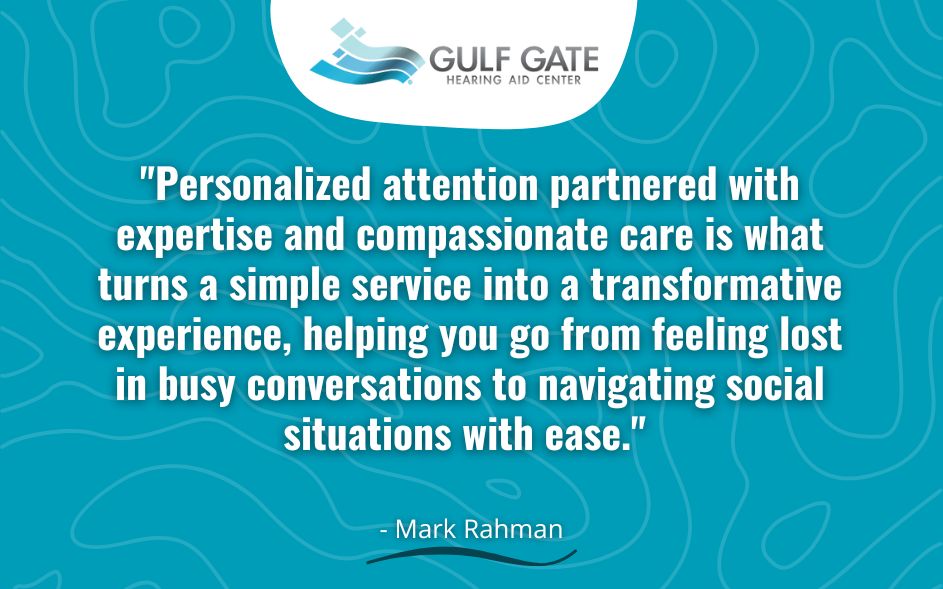The Dos and Don’ts of Taking Care of Your Hearing Aids
Emily Koudelka, HAS
|
Jan 4, 2023
Your hearing aids are what allow you to reconnect with the world around you, allowing you to rejoin the conversations that are taking place around you. They also help you maintain your balance, reduce your risk of cognitive decline, and prevent other negative mental and physical conditions.
Because they are so valuable to you living a more active and independent lifestyle, not to mention a pretty significant investment, taking good care of your hearing aids should be among your highest priorities.
You deserve all the advantages your hearing aids have to offer, and with a few quick checks and some important tips and tricks at home, you can make sure your devices work at their best for you for the long term.
What You Should Do
Wear your hearing aids all day every day. If you are a new user, you may need to adjust gradually, starting with 3 to 5 hours per day and increasing the duration for the first couple of weeks, adding an hour or two each day. After a reasonable break-in period, if your hearing aids cause pain or discomfort, contact your audiologist.
Store your hearing aids in a protected place. Always store your hearing aids in the hard case they came in, the hearing aid dehumidifier case, or the charging box. Make sure to store them away from sunlight and heating vents.
Establish a nightly cleaning routine. Cleaning wax and debris from your hearing aids each night, as outlined in your hearing aid manual, is the best way to ensure they perform properly and last longer.
Inspect your hearing aids daily. When you clean them, inspect the case for cracks and make sure there are no loose or exposed wires. When you first insert them each day, check that they are working by rubbing your hands together near each of your ears – you should be able to hear the rubbing sound clearly.
Always have spare batteries on hand. If you are using a traditional hearing aid, always have spare batteries on hand and replace them as soon as the low-battery warning sound begins.
Keep them away from strong electromagnetic fields. If you require X-rays, CAT and MRI scans, and other procedures that use a powerful electromagnetic field, be sure to remove your hearing aids to prevent damage to the delicate electronic components.
What You Should Not Do
Don’t take your hearing aids near water. Keep your devices away from moisture (shower, bathroom, swimming pool, hot tub, sauna, etc.). Excess moisture can also be the result of built-up earwax. If earwax is a constant stressor for your ears and your hearing aids, you can rely on us to remove it for you!
Don’t let your hearing aids get too hot! Don’t wear them when using a hair dryer, and don’t leave them on a windowsill, on the dash of your car, or near a stove or a radiator. Keep them away from hairspray, perfumes, cleaning solutions, and other harsh chemicals.
Don’t leave your hearing aids in to sleep. It is too easy for them to become damaged without your knowledge. We advise you to clean your hearing aids at night so they are in their drying case while you sleep.
Don’t store the batteries in the refrigerator or store your hearing aids for an extended period of time with the batteries inside.
Don’t leave your hearing aids within the reach of small children or pets. In addition to potential damage, swallowing a battery is a true medical emergency.
Don’t attempt to repair your hearing aids yourself. Repairing your hearing aids requires specialized equipment and training to ensure proper function and protect their warranty. Contact us for professional hearing aid repair.
Answering Your Hearing Aid Troubleshooting Questions
Although you should leave repairs and maintenance to trained professionals, there are some issues that may arise during your daily routine that are easy to address at home.
Why Is My Hearing Aid Whistling?
Known as feedback, hearing aid whistling is caused by the amplified sound being sent back through the microphone in an endless loop.
Follow these steps to eliminate the problem:
Ensure the device is inserted properly.
Make sure the volume is not too loud.
Change the wax filter, if applicable.
Avoid pressing your phone or other electronics too close to your hearing aid.
Address excess buildup of earwax, whether through professional care or safe DIY methods.
My Hearing Aid Signal Is Weak or Distorted!
A weak or distorted signal is usually an issue with the battery or a low charge.
Here’s how to troubleshoot this issue:
Make sure you are using the right battery that is properly activated and inserted into the battery compartment. Ensure that the battery compartment is free of debris, moisture, and/or corrosion.
Rechargeable devices should be given a good charge following the proper charging procedures.
Other issues are a clogged earmold and/or a broken receiver wire. Clean and inspect your device according to manufacturer directions, and bring your hearing aid in for professional repair.
My Hearing Aids Aren’t Working Anymore…
If your hearing aids produce no sound, they are either not receiving power or the microphone is muted. Here’s how to fix it:
Ensure it is powered on.
If there’s already a battery installed, replace it with a fresh one; for rechargeable models, ensure both the hearing aid and the charger are fully charged.
Check to see if the earmold is clogged; gently clean it according to the manufacturer’s directions.
Check for damage to the case or loose wires. Bring it in for professional repair if you find either of these problems.
My Hearing Aids Won’t Pair with My Phone or Computer?
Bluetooth pairing is a necessary step in the process of using your hearing aid along with your smartphone or other digital device. If you’re having trouble pairing your hearing technology with another Bluetooth-enabled electronic device, follow these steps:
Ensure Bluetooth is activated on your hearing aid and the other device. Ensure that any required app or Wi-Fi access is on.
Confirm that the devices aren’t already paired, which may occur automatically at times. Disconnect other devices that are paired to the device with which you’re trying to pair.
Make sure your equipment and hearing aid are within range (30 feet or less) for the connection to take place.
Restart the pairing process, following the instructions in your hearing aid manual.
Gulf Gate Provides Help with Proper Hearing Aid Care
It is our goal to help you enjoy all of the advantages your hearing aids provide.
Your hearing aids are crucial to improving your quality of life and keeping you connected with the world around you. You and your devices deserve the best of the best when it comes to your care.
Whether you’re in need of an expert repair for your existing devices or you’re looking for an upgrade to something more high-tech, you can depend on our team of experts to help you hear the life you love without interruption.
Contact us if you need a little extra help with your hearing aids! You can call us in Bradenton at (941) 795-2811 or in Sarasota at (941) 922-5894.



